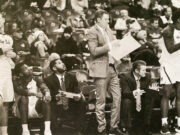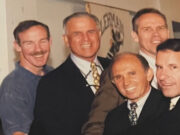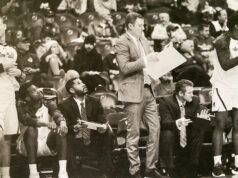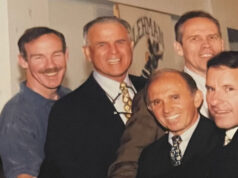By Paul Schienberg, PhD
This article will address more communication blocks that can interfere with inner personal blocks (player in player and coach in coach) and interpersonal blocks (player to coach, player to player and coach to player) understandings and athletic performance. Please re-read The Basics in “Communication Blocks: I”, volume 3, Issue 7 before reading the list in this article (http://www.psychedonline.org/Articles/Vol3Iss7/CommunicationBlocks.htm).
Seven More Common Internal and Interpersonal Communication Blocks
8. The athlete or coach is not clear what he really needs from the communication process.
9. One of the two parties is not aware of using vague thinking and terms as well as “hand grenade” terms and phrases. Also, they are unaware of their options to use respectful hearing checks to confirm what they are decoding the other’s meaning accurately.
10. The player and coach may deny or minimize their true feelings to themselves and to the other person. The receiver of a message, for example, may feel they should be interested, but he is in fact bored or couldn’t care less. This, of course, adds to a sense of distrust. Young people are more apt to pick up these “self-lies” than older people who are habituated to them.
11. Complete withholding of emotions from communications – intentionally or subconsciously – can leave the listener unsure of the full meaning of the message from the speaker. The player may interpret this as “You don’t trust me,” or “You are hiding something bad.” This can result in anxiety and distrust. This communication block creates a lack of connectedness – not being on the same page.
12. Focusing “too often” on the past or the future can result in lack of confrontation and resolutions to problems in the present. A unique case is the reaction a coach imagines an event so vividly that she reacts to her player in the present as if the event has already occurred (“I know you’ll be late for practice again.”) This is sign of false-self dominance.
13. Compulsively focusing on one’s Self or steadily deflecting from one’s Self will result in unbalanced and “shallow” communication. At worst, an athlete or coach may increasingly feel used and discounted or “disconnected” and resentful, and develop “impaired hearing.” Awareness and respectful assertion may change this.
14. A player/coach is unaware of the true needs under conflicting surface needs. For example, a player says, “Coach, I want to talk with you” (surface need) may really mean “I need to be reassured that you still want me to be on the team, because it seems like you don’t look at me in the dugout.” Awareness, clear thinking, patient digging down, assertion and empathic listening help unearth semi-conscious current true needs. “Old “issues” keep resurfacing and/or causing strong feelings because the true needs beneath them haven’t been clearly acknowledged and filled.
Summary
Parts III and IV of this series will add to the list of communication blocks. If you have examples of communication blocks that have occurred in your athletic or coaching career, please send them to us. We will pass them onto our readers along with their positive resolutions.













